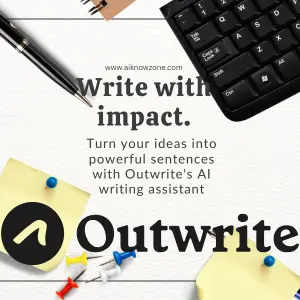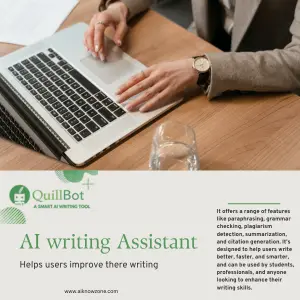
The GPT You Wish Your Parents Had Asked
Dive into our review of ‘The GPT You Wish Your Parents Had Asked,’ a specialized AI tool designed to support parents with personalized advice and child development insights.
Description
The GPT You Wish Your Parents Had Asked: A Parent’s AI Companion?
Okay, let’s be real: parenting is a wild ride 🤪. Sometimes you feel like you’re acing it, and other times you’re desperately searching for answers at 3 AM. That’s where The GPT You Wish Your Parents Had Asked comes in! This isn’t your average chatbot; it’s a specialized AI tool built on ChatGPT designed to give parents and caretakers a helping hand with the everyday challenges of raising kids. Imagine having a wise, albeit digital, friend who offers insights on child development, suggests strategies for tricky situations, and even helps you understand things from a kid’s perspective. The main purpose of this GPT is to transform the complexities of raising children into simple, engaging advice. It is unique because it is designed with a child-like perspective that enables it to make concepts easy to understand, especially on parenting and child development. From navigating tantrums to fostering creativity, this AI aims to be the supportive guide you always wished you had. But does it live up to the hype? Let’s dive in and find out if this GPT is truly a game-changer or just another digital distraction.
Key Features and Benefits of This Parenting AI
- Child-like Perspective: Offers advice from a kid’s point of view, helping parents understand their children’s thoughts and feelings better. This is super helpful because it helps you empathize and deal with situations more effectively.
- Personalized Advice: Provides tailored suggestions based on specific parenting issues and questions, making the guidance relevant and practical. This isn’t a one-size-fits-all solution; it adapts to your unique family dynamic.
- Complex Concept Simplification: Transforms intricate child development theories into easy-to-understand tips and strategies. No more wading through jargon-filled articles!
- Supports Meaningful Connections: By offering strategies for fostering stronger relationships with your children, it helps cultivate a more positive and nurturing environment. Ultimately, parenting is about connection, and this tool seems to understand that.
How It Works (Simplified)
Using The GPT You Wish Your Parents Had Asked is pretty straightforward. First, you’ll access it through the ChatGPT interface or a platform that hosts custom GPTs. Then, you simply start a conversation by asking a question or describing a parenting scenario. For instance, you could ask, “How can I help my child manage their screen time?” or “What are some fun activities to boost my toddler’s creativity?” The AI will then process your query and provide you with relevant advice, insights, and suggestions. It’s designed to be interactive and supportive, so feel free to engage in a dialogue to further explore your concerns and refine the recommendations. The goal is to make parenting advice accessible and actionable, right at your fingertips.
Real-World Use Cases for The GPT You Wish Your Parents Had Asked
- Tantrum Taming: Imagine your child is having a meltdown in the grocery store. You can quickly ask the GPT for strategies to de-escalate the situation and learn techniques for preventing future outbursts.
- Homework Help: Your child is struggling with a math problem, and you’re drawing a blank. The GPT can offer explanations and alternative approaches to help you guide your child through the challenge without frustration.
- Sibling Squabbles: The kids are constantly fighting. The GPT can provide tips for mediating conflicts, teaching them conflict resolution skills, and fostering a more harmonious sibling relationship.
- Emotional Support: Your child is feeling anxious about starting a new school. You can use the GPT to find ways to validate their feelings, offer encouragement, and help them develop coping mechanisms. This is invaluable to emotional wellbeing.
Pros of The GPT You Wish Your Parents Had Asked
- Provides instant access to parenting advice and support.
- Offers a unique, child-centered perspective.
- Simplifies complex child development concepts.
- Can help foster stronger, more meaningful connections with your children.
- It’s accessible 24/7, a true blessing for those late night oh-no-moments.
Cons of using The GPT You Wish Your Parents Had Asked
- Relies on AI, which may not always be a substitute for professional advice or a real therapist.
- The quality of advice can vary based on the prompts used.
- Potential for over-reliance on the tool, neglecting personal intuition and judgment.
- May not be suitable for addressing serious or complex mental health issues.
The GPT You Wish Your Parents Had Asked Pricing
As The GPT You Wish Your Parents Had Asked is a custom GPT built on ChatGPT, it’s generally accessible with a ChatGPT Plus subscription (check OpenAI’s website for the most up-to-date pricing). This subscription gives you access to GPT-4 and the ability to use custom GPTs. Keep an eye on the platform where you access the tool, as there might be specific pricing structures or subscription models associated with it in the future.
Conclusion
Overall, The GPT You Wish Your Parents Had Asked appears to be a valuable tool for parents seeking quick, accessible advice and insights. It’s not a replacement for professional guidance, but it can be a helpful supplement for navigating the everyday challenges of parenthood. If you’re a parent looking for a convenient and supportive AI companion, this GPT might just be what you need. I recommend that parents looking for guidance in parenting journey should use this tool. It helps you cultivate stronger, more meaningful connections with your children, by harnessing the power of AI and GPT technology, this bot serves as a trusted companion on your parenting journey. Just remember to use it as a starting point and always trust your instincts! 👍





Reviews
There are no reviews yet.